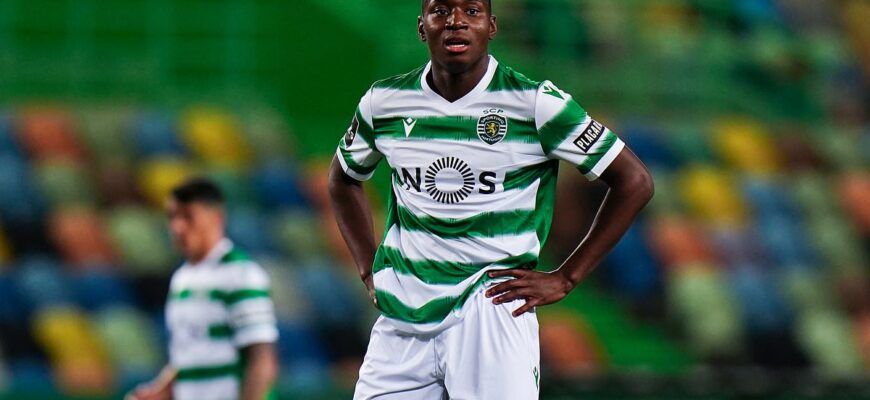A high-stakes verbal volley has erupted in Portuguese football, as Vitória Sport Clube delivers a sharp rebuke to FC Porto President André Villas-Boas, igniting a broader debate on club finance and the future of television rights.
The world of Portuguese football, known for its passionate rivalries and dramatic flair, recently witnessed a rather pointed exchange that moved from the pitch to the boardroom. At the heart of this latest disagreement is none other than André Villas-Boas, the newly elected President of FC Porto, whose comments regarding club financial management have stirred a hornet`s nest.
The Spark: Villas-Boas`s Scrutiny of Investor Practices
The setting was the Portugal Football Summit, a forum typically reserved for strategic discussions on the sport`s future. Villas-Boas, a figure accustomed to analytical dissection from his days as a tactician, chose this platform to highlight a potential pitfall: the perceived risk of investors in Portuguese football clubs prematurely anticipating revenue from television rights. This, he suggested, was particularly pertinent in the nascent context of centralized TV rights, a system designed to bring more equity to the Liga Portugal.
In illustrating his point, Villas-Boas cited Vitória Sport Clube, commonly known as Vitória de Guimarães. While perhaps intended as a general example, the mention of a specific club, especially one with its own distinct identity and fervent fanbase, proved to be less than diplomatic. The reaction from the “Vimaranenses” was swift and unequivocal.
Vitória SC`s Resounding Retort: “We Dispense with Outside Interference”
Vitória SC, under the leadership of António Miguel Cardoso, wasted no time in issuing a formal communiqué. Their message was clear: Villas-Boas`s remarks were not only unwelcome but, crucially, suffered from a “lack of knowledge.” It’s a bold accusation, particularly when leveled against a figure like Villas-Boas, who is often perceived as a cerebral and well-informed personality within football. One might almost detect a subtle irony in the idea of a former Champions League-winning manager being told he`s not sufficiently informed on club finances, especially when those finances pertain to another institution.
The communiqué firmly stated:
“Regarding the management of Vitória Sport Clube and the existence of an investor in its Sports Society, the president of FC Porto does not need to worry. Although we understand the interest in Vitória Sport Clube, we dispense with outside interference, especially with a lack of knowledge.”
Defending Autonomy and Strategic Partnerships
Vitória SC’s statement went beyond mere dismissal; it served as a robust defense of their operational model and investor relations. They proudly highlighted V Sports, their partner in the club’s Sports Public Limited Company (SAD), describing them as a “solid, credible group with a proven track record in the world of sport” – emphatically not the “threat” implied by Villas-Boas`s narrative. This was a clear declaration that their financial structures are sound and their partnerships strategic, not perilous.
Furthermore, Vitória SC underscored its commitment to democratic governance. The club emphasized that it retains a majority stake in the SAD`s share capital, and all crucial structural decisions are subject to approval and voting by its members in general assemblies. This point is crucial, as it asserts a degree of club autonomy and member oversight that perhaps contrasts with other models in Portuguese football. It`s a testament to the idea that some clubs still value the collective voice of their supporters in fundamental decisions.
A Broader Vision for Centralized TV Rights
The disagreement also illuminated differing philosophies on the much-anticipated centralization of television rights. While Villas-Boas`s comments seemed to caution against revenue anticipation, Vitória SC presented a more idealistic, yet pragmatic, perspective.
For Vitória SC, the purpose of centralized TV rights is not merely to accelerate revenue streams. Instead, it aims to:
- Correct Historical Inequalities: Addressing imbalances that have traditionally favored larger clubs.
- Create a Fairer Distribution Model: Ensuring that financial benefits are spread more equitably across the league.
- Promote Sustainable Growth: Allowing Portuguese football to develop in a balanced, attractive, and long-term viable manner.
- Enhance Talent Development: Increasing the capacity to attract, train, and retain talent within the national ecosystem.
In this vision, Vitória Sport Clube sees itself not as a “peripheral” entity, but as a vital “motor of credibility, training, and identity within national football.” It`s a powerful declaration of self-worth and a demand for recognition that extends beyond mere financial transactions.
The Enduring Debate: Club Autonomy vs. League Unity
This public spat between FC Porto and Vitória SC is more than just a minor disagreement; it`s a microcosm of the ongoing tensions and strategic debates within Portuguese football. It highlights the fierce independence of clubs, the scrutiny applied to financial models, and the differing interpretations of what constitutes a healthy and sustainable future for the league.
As the Primeira Liga navigates the complexities of modern football finance, the discussions initiated by figures like André Villas-Boas and the responses from clubs like Vitória SC will undoubtedly shape the landscape. One thing is certain: in Portuguese football, silence is rarely an option, and the pursuit of club interests, often articulated with conviction and a touch of regional pride, remains paramount.









